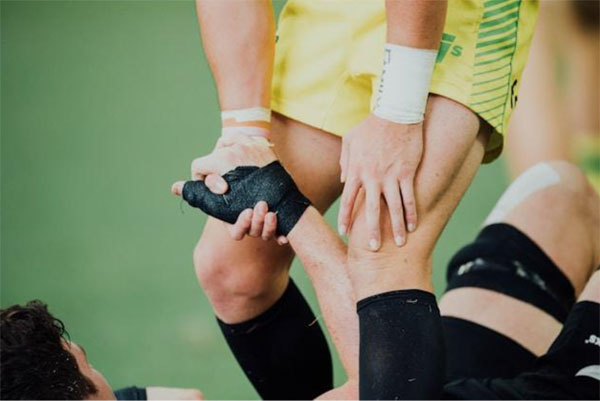Understanding Personal Injury Law: Insights from Orlando Personal Injury Lawyers
By Space Coast Daily // October 26, 2024

Personal injury law is a broad legal field that offers protection to individuals harmed by the negligence or wrongful actions of others. For people in Orlando, understanding how personal injury law works is crucial if you want to pursue compensation for your injuries.
Whether it’s a car accident, a slip and fall, or a case of medical malpractice, personal injury law enables victims to seek justice and compensation for their losses.
In this article, we will explore the fundamentals of personal injury law, the types of cases commonly handled by Orlando personal injury lawyers, the legal process for filing a claim, and essential tips for maximizing your compensation.
What Is Personal Injury Law?
Personal injury law, also known as tort law, involves civil cases where an individual suffers harm due to another party’s negligence, recklessness, or intentional misconduct. The goal of personal injury law is to provide monetary compensation (also known as “damages”) to the injured person for medical expenses, lost wages, pain and suffering, and other losses resulting from the incident.
Key Principles of Personal Injury Law
- Negligence: The foundation of most personal injury cases, negligence occurs when someone fails to act with reasonable care, resulting in harm to another person.
- Liability: Determining who is responsible for the injury is essential. In many cases, the liable party is someone who breached their duty of care.
- Damages: The injured party must demonstrate that they have suffered actual damages, which can include medical costs, property damage, or emotional distress.
Common Types of Personal Injury Cases in Orlando
Orlando personal injury lawyers often handle a variety of cases, each requiring specialized knowledge and experience. Some of the most common types of personal injury claims include:
1. Car Accidents
Car accidents are one of the leading causes of personal injury claims in Orlando. Whether it’s a fender bender or a serious collision, victims can file a claim to recover damages for injuries caused by another driver’s negligence.
2. Slip and Fall Accidents
Slip and fall accidents usually occur due to unsafe conditions, such as wet floors, poorly maintained sidewalks, or inadequate lighting. Property owners have a legal obligation to maintain safe conditions, and failure to do so can result in liability.
3. Medical Malpractice
Medical malpractice occurs when healthcare providers fail to meet the standard of care, resulting in injury or death to the patient. This can involve surgical errors, misdiagnosis, improper treatment, or medication errors.
4. Product Liability
If a defective product causes injury, the manufacturer, distributor, or retailer may be held accountable under product liability law. This can include defective auto parts, appliances, or even harmful prescription drugs.
5. Workplace Accidents
While workers’ compensation usually covers workplace injuries, there are cases where a third party (someone other than the employer) can be held responsible, allowing the injured worker to pursue additional compensation.
Steps in Filing a Personal Injury Claim in Orlando
Filing a personal injury claim involves several key steps, each of which plays an important role in the success of the case.
1. Seek Medical Attention
The first and most crucial step after an injury is to seek medical attention. Not only is this important for your health, but medical records will serve as essential evidence if you decide to file a claim.
2. Gather Evidence
Evidence is critical in personal injury cases. Photographs, witness statements, medical records, and police reports can help build a strong case. It’s important to document everything related to the incident, including the scene of the accident and any correspondence with the other party.
3. Contact an Orlando Personal Injury Lawyer
An experienced personal injury lawyer can guide you through the legal process, evaluate the strength of your case, and represent you in negotiations or court. Most personal injury lawyers in Orlando offer free consultations and work on a contingency fee basis, meaning they only get paid if you win your case.
4. File a Claim
Once you have all the necessary evidence, your attorney will file a claim with the at-fault party’s insurance company. In some cases, negotiations with the insurance adjuster can resolve the case. If a fair settlement cannot be reached, a lawsuit may need to be filed.
5. Settlement Negotiations or Trial
Most personal injury cases are settled outside of court. However, if the insurance company refuses to offer a fair settlement, your case may go to trial. During the trial, both sides will present evidence, and a judge or jury will determine whether the defendant is liable and, if so, the amount of compensation owed to the plaintiff.
Compensation in Personal Injury Cases
The amount of compensation available in personal injury cases varies depending on the circumstances. Here are the types of damages typically awarded:
1. Economic Damages
Economic damages are quantifiable losses, including:
- Medical Expenses: Covers the cost of medical treatment, rehabilitation, and any ongoing care related to the injury.
- Lost Wages: If the injury prevents you from working, you can recover lost wages, including future earnings if the injury leads to long-term or permanent disability.
- Property Damage: If your personal property (e.g., a car) was damaged in the incident, you could recover the cost of repairs or replacement.
2. Non-Economic Damages
Non-economic damages compensate for more intangible losses, such as:
- Pain and Suffering: Physical pain and emotional distress caused by the injury.
- Loss of Enjoyment of Life: If the injury impacts your ability to enjoy life, such as participating in hobbies or spending time with family.
- Emotional Distress: Includes anxiety, depression, and other psychological effects of the injury.
3. Punitive Damages
In cases involving gross negligence or intentional misconduct, the court may award punitive damages. These are meant to punish the wrongdoer and deter others from engaging in similar behavior.
Tips for Maximizing Compensation in Your Personal Injury Case
To ensure you receive the compensation you deserve, it’s essential to follow these tips:
1. Hire an Experienced Orlando Personal Injury Lawyer
An experienced personal injury lawyer will have a thorough understanding of the law, local court procedures, and the tactics used by insurance companies. They can negotiate a better settlement or take your case to trial if necessary.
2. Document Everything
Keeping detailed records of all expenses related to your injury (medical bills, repair costs, lost wages) and maintaining a journal of how the injury has affected your daily life can strengthen your case.
3. Avoid Accepting Quick Settlements
Insurance companies often offer low initial settlements to close cases quickly. Consult with your attorney before accepting any offer to ensure that it fully compensates you for your losses.
Conclusion
Understanding personal injury law is essential for anyone who has suffered harm due to someone else’s negligence. With the right knowledge and legal representation, you can navigate the complexities of the legal system and pursue the compensation you deserve. Orlando personal injury lawyers are well-versed in handling a variety of cases, from car accidents to medical malpractice, and can guide you through the process to achieve a successful outcome.
If you’ve been injured, don’t hesitate to seek legal advice. A skilled attorney can evaluate your case and help you take the steps necessary to recover financially, physically, and emotionally from your injury.

As a journalist, Leland Bengtson dedicated most of his career to law reporting. His greatest satisfaction is to convey legal matters to the public in a language that they can understand. He is active on various platforms and media outlets, writing about common legal issues that people confront every day. While medical malpractice is his strong suit, Leland covers plenty of other topics, including personal injury cases, family law, and other civil and even criminal legal matters.












